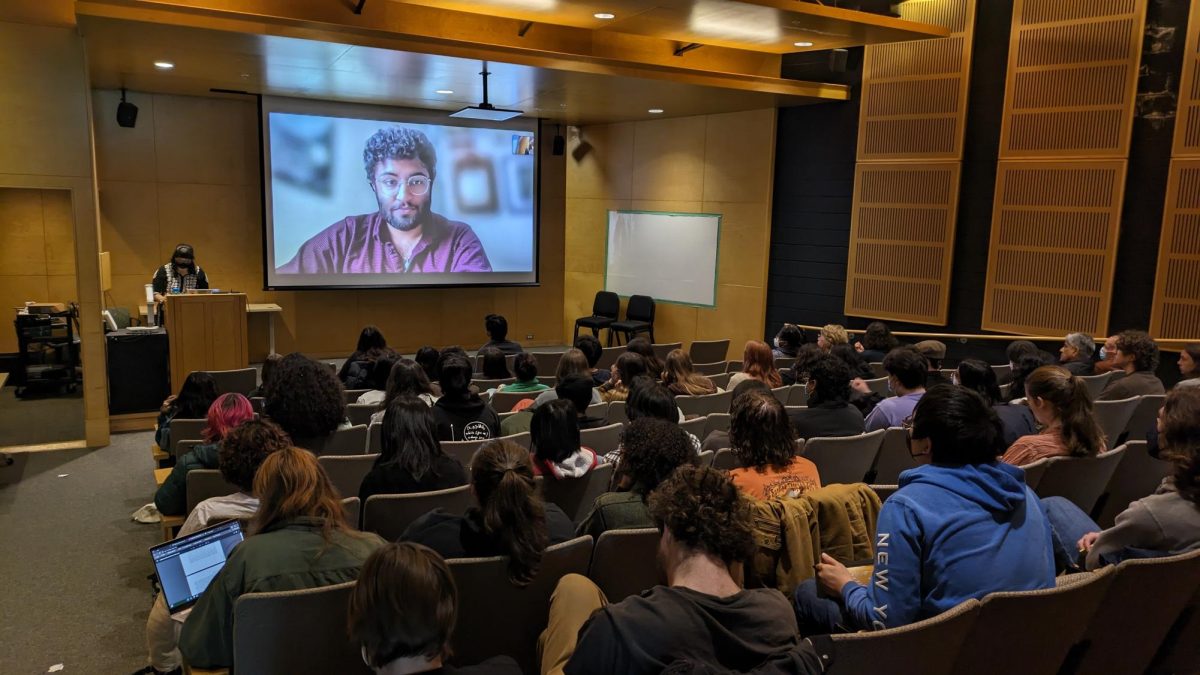Gender Segregation in Sports Should Be Reconsidered
September 22, 2017
Last week, at the recommendation of my Philosophy professor, I attended a lecture by Dr. Rachel McKinnon titled “Including Trans Athletes in Sports.” I’m glad I went, because it challenged me to think more deeply about why we segregate sports by gender. Historically, Black athletes have performed better in sports, but if we split sports by race, most would consider this to be absurd. If this is true, why do we accept segregation of sports by gender?
McKinnon is an Assistant Professor in the Philosophy department at the College of Charleston and an international cyclist hoping to compete in the next Olympic Games. As a trans female athlete, she has faced many challenges in competing in organized athletic competitions and currently devotes her time to helping other athletes in similar positions by applying her background in philosophy and law.
During her lecture, McKinnon mentioned the story of Dutee Chand, an intersex female sprinter who desired to compete in the women’s league. Chand, a native of India, faced significant barriers to competing in her home country, which is, according to McKinnon, often less progressive with regard to gender identity than many other countries. This case quickly grew from a local issue in India to an international issue. As awareness of gender issues grows worldwide, some countries remain less accepting than others. This is a growing problem for international competitions which may not be resolved by the next Olympics.
Indian law deemed Chand an “ineligible female” due to her high testosterone levels. This disqualified her from the women’s division, yet she was also prohibited from competing in the men’s league. On Chand’s behalf, McKinnon and a team of lawyers successfully brought the case to the Court of Arbitration for Sports in Switzerland.
Chand’s story highlights several of the key points that McKinnon brought up during her lecture. McKinnon explained that “fair discrimination” — such as that based on weight classes, age groups, and other distinguishing factors — exists to create fair competition; however, there are not competition classes separated by testosterone levels. McKinnon argued that such classes do not exist because performance is not dependent on testosterone.
McKinnon also pointed out that more skill-based sports — like chess, archery, shooting, and pool — are gender segregated, even though testosterone plays no role in performance. She noted that after a Chinese woman won gold in Olympic skeet shooting, the event was split by gender at the following Olympics, revealing that gender segregation in sports is not necessarily about innate gender differences. She also commented that it is more widely accepted when a trans man competes in a men’s league than when a trans woman competes in a women’s league — an example of how the regulations of gendered sports leagues can become hazy.
Toward the end of McKinnon’s lecture, I was still confused about her stance on whether gender segregation in sports is “fair discrimination.” When I asked for clarification, she responded that she could not truly answer the question. She argued that various societies raise men and women differently, and that these circumstances could account for the physical differences between men and women. According to McKinnon, if men and women were raised the same, women could be just as tall or taller than men.
I don’t buy this argument because, in my experience, men are generally stronger and bigger, and testosterone does have an effect on performance.
This point is emphasized by a case earlier this year in which Texas law compelled Mack Beggs, a 17-year-old trans boy, to unwillingly compete in the girls wrestling division. Beggs was taking testosterone as part of his gender transition, but since his birth certificate designated him as female, he was not allowed to compete in the boys’ division.
Beggs went on to have an undefeated season, routinely destroying his opponents. He said that he would have preferred the chance to wrestle boys. With this situation in mind, I find it hard to believe that testosterone has no effect on athletic performance.
Gender segregation in sports is a complicated issue. When I was about eight years old, I began playing on gender-segregated teams, and never questioned it. When I became a teenager, I began to wonder why all of the boys had an edge over me. No matter how hard I tried, I could not really compete with them. Initially, I did not understand how this was possible, since we trained in the same way. But as I got older, I began to realize that I could not compete against men because my body is just built differently. As much as I wanted to compete with boys, I learned to accept that I was physically not able to and that if I tried, the competition would not be fair — which defeats the purpose of competition itself.
Trans athletes should absolutely have the same opportunities to compete in sports as cis athletes. However, it is important that we also weigh the fairness of competition for everyone. Finding a fair way to strike this balance is a new issue, and demands a solution that respects all identities while also upholding a fair and competitive atmosphere. For the time being, hormone tests are necessary in order to maintain fair competition, specifically in cases of trans women competing in women’s leagues, but this is clearly not a permanent solution as it potentially invalidates many individuals’ gender identities. Neither McKinnon nor I have a solution, and I doubt we will find the perfect one on the first try, but I believe that we will eventually develop regulations that are fair to all athletes.















